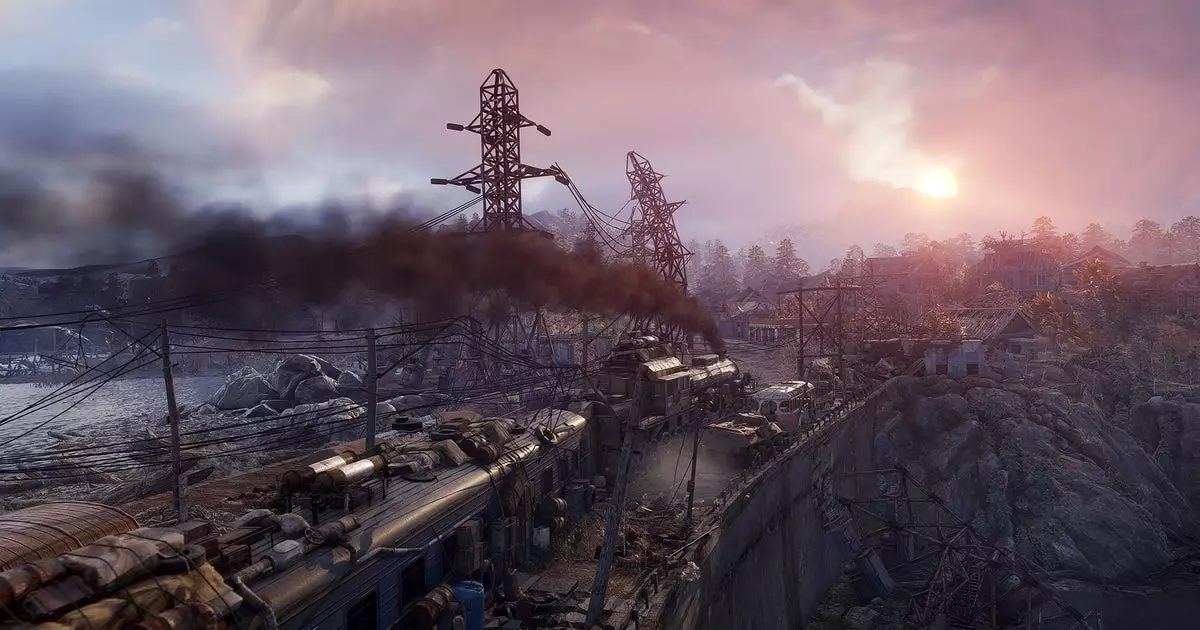In the gaming world, anniversaries often serve as a powerful reminder of a title’s impact. This month, Metro 2033, the groundbreaking survival horror first-person shooter, celebrates its fifteenth anniversary, marking more than just a milestone—it’s a testament to resilience and artistic expression amidst adversity. Originally based on Dmitry Glukhovsky’s captivating novel and first released in 2010, Metro 2033 took players deep into the post-apocalyptic tunnels of Moscow. The game set a new standard for atmospheric storytelling, combining unsettling environments with profound themes of survival, isolation, and human conflict.
Adversity as Inspiration
The development team at 4A Games, located in the heart of Ukraine, has faced tumultuous challenges like no other, especially following the Russian invasion in 2022. In a recent blog post, they recounted the immense odds they continue to overcome. Despite missile strikes and constant threats, they assert that work on their projects remains ongoing. This commitment under such peril is not just commendable; it’s a reflection of the creators’ dedication to their craft and their deep connection to the themes that define the Metro series.
Strikingly, the invasion altered their narrative trajectory. The team shared that the real-life horrors unfolding around them have led to a heightened exploration of darkness in their storytelling. They’re not merely creating a game; they are channeling real experiences into a poignant narrative that resonates with the current socio-political climate. As they noted, “As art became life for many of our developers in Ukraine… those themes already present in Metro becoming ever-more apparent and important.” This transformation highlights how the game evolves alongside its creators, proving that creativity can often flourish in even the bleakest of times.
Legacy of Timeless Themes
Throughout its evolution, the Metro series has been lauded for its profound political commentary and anti-war sentiments. As the developers assure fans, the continuation of these hard-hitting themes is deeply rooted in their ongoing collaboration with Glukhovsky, who remains an activist even from abroad. With the backdrop of an ongoing war, the developers aim to offer an immersive experience that mirrors the struggles for power, freedom, and the human cost of conflict. This promise might make players uncomfortable, but it is this very discomfort that makes the narrative so essential and riveting.
Moreover, the adaptation of these themes amid real-world turmoil lends Metro’s narrative weight and urgency. Levels of desperation and moral ambiguity weave into the gameplay, inviting players to question not just the characters’ decisions but also their empathies.
The Promise of Metro 4
With the mention of Metro 4, anticipation among fans is palpable. Revealed last January in conjunction with the announcement of VR title Metro Awakening, the next chapter of the franchise seems poised to push boundaries once again. The developers are clear: while excitement builds, they urge patience. “It will be ready when it is ready,” they state, assuring gamers that quality and depth will not be compromised in favor of haste.
The landscape for storytelling in games is ever-shifting, but 4A Games’ experiences reaffirm that true art cannot be rushed. With the challenges they face, the end product promises not just to entertain but to provoke thought—a hallmark of the Metro series. In times of chaos, it creates a haunting mirror, one that reflects our realities while entrenching us in the deep recesses of survival horror. The community watches and waits with bated breath, ready to embrace whatever darkness the next installment will unfurl.

